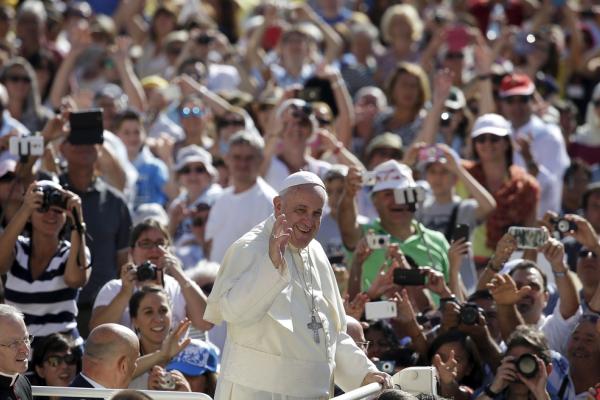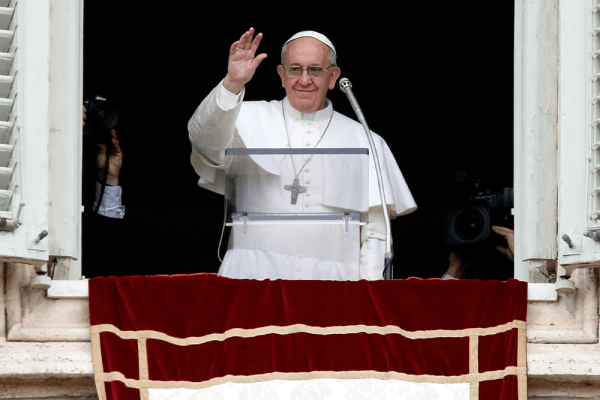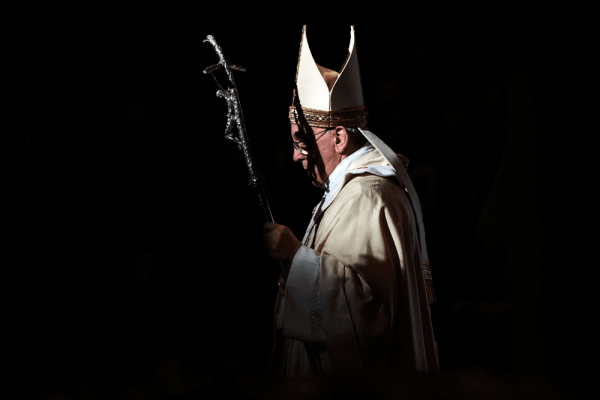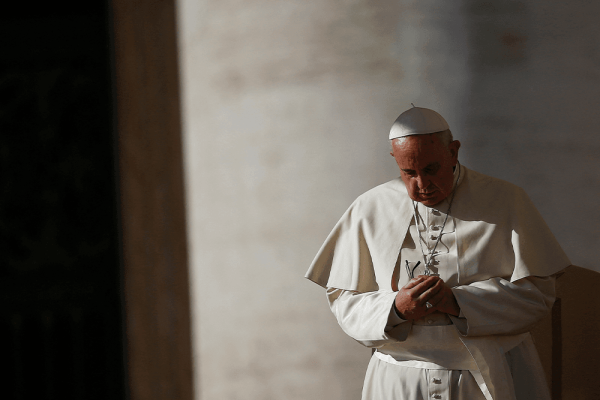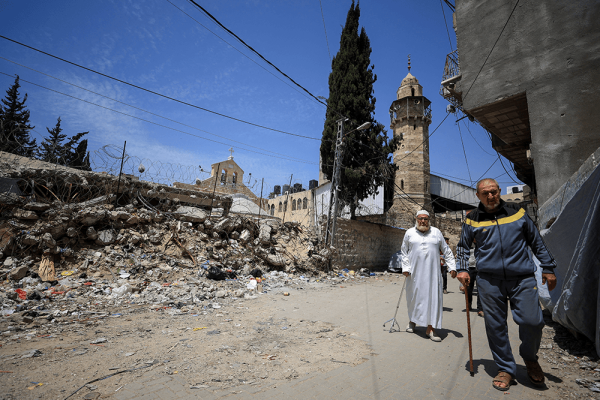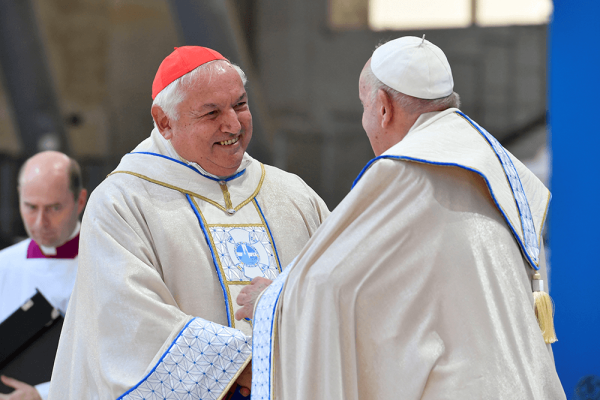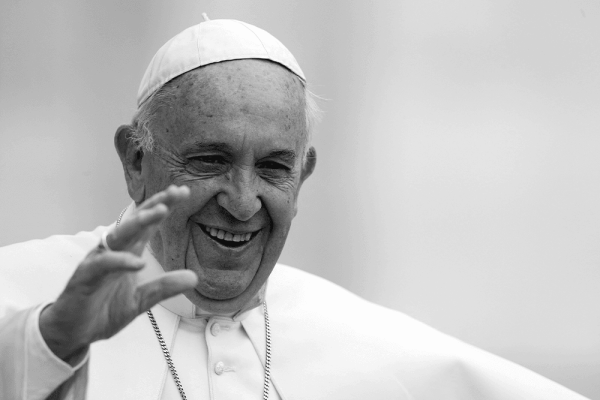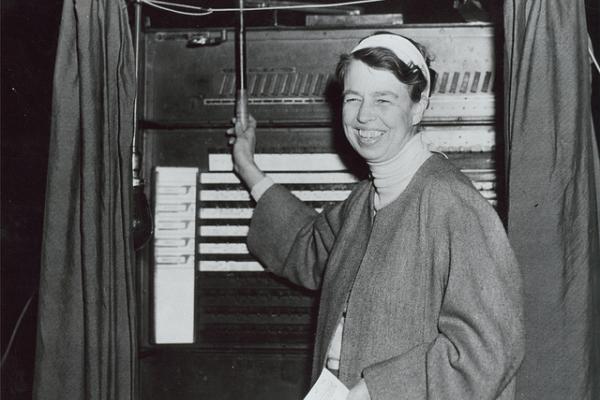The pope’s final months have felt to me like the times when my grandparents were at the end of their lives. We waited for updates from the doctors. We waited with dread for the phone call — or in this case, breaking news emails and social media posts — to bring the final news. There were moments of hope, including Pope Francis emerging from the hospital and appearing in St. Peter’s Square. But we knew that at some point, we’d be facing the loss of someone we loved.
Pope Francis, born Jorge Mario Bergoglio in Buenos Aires, Argentina, was the first in a long line of 266 popes to be from South America and the first born outside of Europe since the 8th century. The pope, also the first to be a member of the Jesuit Order, was beloved by many progressive Catholics and lauded for his priorities of uplifting marginalized communities, protecting immigrants and advocating for environmental justice. According to a 2024 Pew Research Center survey, about 75% of U.S. Catholics viewed Pope Francis favorably.
But he was also a polarizing figure. He struggled to manage the ongoing sexual abuse crisis that plagued his predecessor, Pope Benedict XVI. Pope Francis met with survivors and attempted to pass reforms within the Church, but victims continue to come forward.
In his 12 years as pontiff, Pope Francis forged a legacy of compassion, humanity, and joy. The pope’s concern for social justice was on the mind of many mourning his death. From climate change to global poverty, war and violence, LGBTQ+ people and women’s roles in the church, Francis was remembered not just for his teachings or leadership on hot-button topics, but also the Argentine’s pastoral approach to the people caught up in them.
Francis’ attempts at reforming the church often clashed with Catholicism’s growing right wing and failed to stop the flood of Catholics abandoning the church. It takes time to turn a 2,000-year-old church around, and ultimately, Francis’ papacy would be a complicated one, marred by the damage done in the church’s past, even as he tried to guide it forward into an unclear and troubling future. But like his namesake saint, he always put being a pastor first.
Francis called the church hours after the war in Gaza began in October 2023, Antone said, the start of what the Vatican News Service would describe as a nightly routine throughout the war. He would make sure to speak not only to the priest but to everyone else in the room, Antone said.
An old Italian saying warns against putting faith, or money, in any presumed front-runner ahead of the conclave, the closed-door gathering of cardinals that picks the pontiff. It cautions: “He who enters a conclave as a pope, leaves it as a cardinal.”
But here are some cardinals who are being talked about as “papabili” to succeed Pope Francis, whose death at the age of 88 was announced by the Vatican on Monday.
When Pope Francis’ condition first began to worsen in February, I found myself suddenly feeling the kind of vertiginous paradigm shift usually reserved for the loss of close family or friends, that sense of a curtain being torn aside and a truth being revealed. The detail that really broke me was the news that as he had gotten sicker, Francis continued to text and call the people of Holy Family Parish in Gaza. It was so far beyond what anyone would expect of a critically ill 88-year-old man. And yet it crystallized for me what has been so personally important about Pope Francis: his dedication to welcoming those on the margins.
Pope Francis, the first Latin American leader of the Roman Catholic Church, has died, the Vatican said on Monday, ending an often turbulent reign marked by division and tension as he sought to overhaul the hidebound institution.
"Courage is more exhilarating than fear, and in the long run it is easier. We do not have to become heroes overnight. Just a step at a time, meeting each thing that comes up, seeing it is not as dreadful as it appeared, discovering we have the strength to stare it down."
In this cultural moment, I am convinced that the theological education we are entrusted with demands that we advocate for justice in our world. Because the forces of injustice are so great and manipulative, we need brilliant lawyers advocating for immigrants and incarcerated folks, theologians writing books on the biblical mandate to seek justice, doctors who can tend to those on the frontlines of protests, and politicians and activists who can support the abolition of debt.
